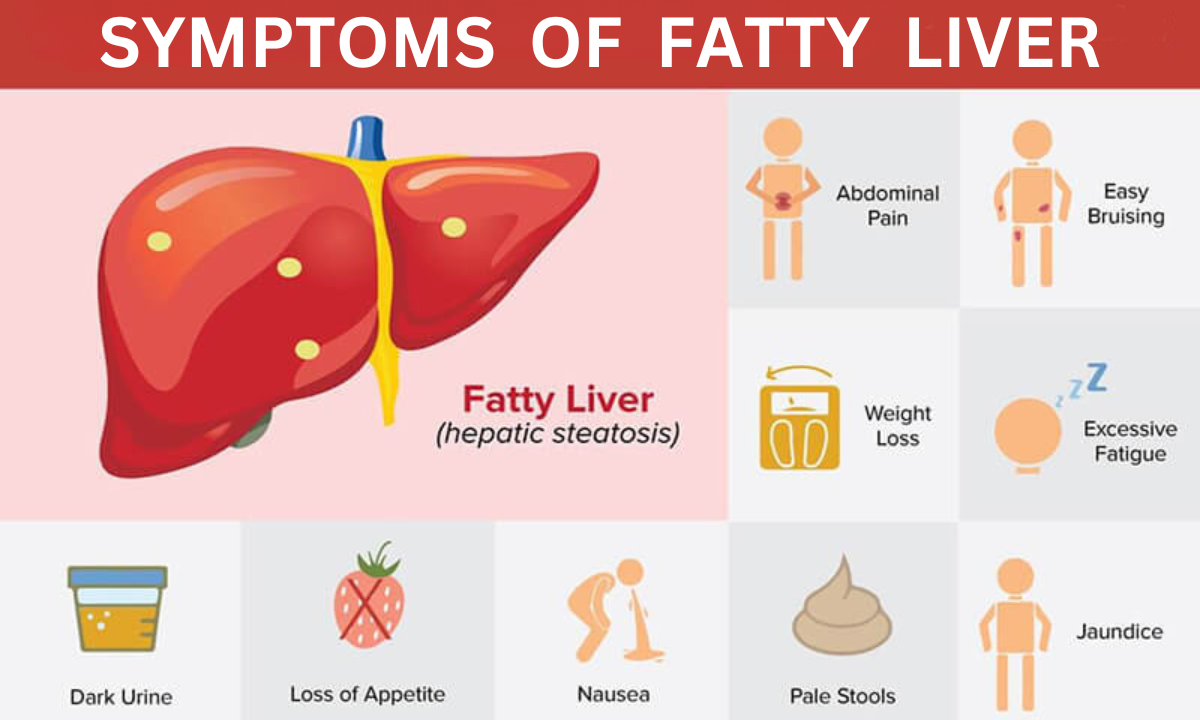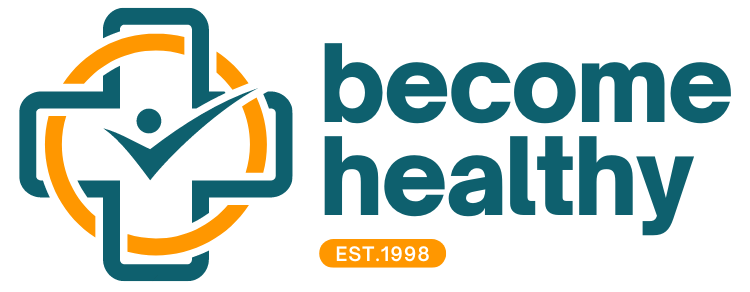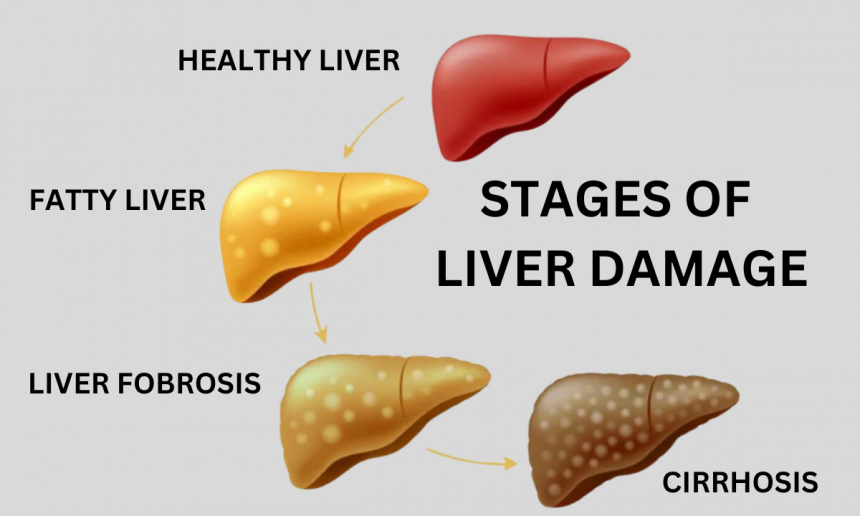The liver, located on the upper-right side of the abdomen, is the largest internal organ of the human body. The main functions of the liver are to remove toxins and process food nutrients. Blood from the digestive system filters through the liver before travelling anywhere else in the body.
Fatty liver disease (steatosis) is the build-up of excess fat in the liver cells, and is a common liver complaint in Western countries. It affects about one in every 10 people. It is normal for the liver to contain some fat, but if fat accounts for more than 10 per cent of the liver’s weight, then you have fatty liver and you may develop more serious complications.
Fatty liver may cause no damage, but sometimes the excess fat leads to inflammation of the liver. This condition, called steatohepatitis, does cause liver damage. Sometimes, inflammation from a fatty liver is linked to alcohol abuse. This is known as alcoholic steatohepatitis. Otherwise, the condition is called non-alcoholic steatohepatitis, or NASH.
An inflamed liver may become scarred and hardened over time. This condition, called cirrhosis, is serious and often leads to liver failure. NASH is one of the top three leading causes of cirrhosis.
Fatty Liver Disease Types

Alcoholic Fatty Liver Disease (AFLD)
Cause:
Resulting from excessive alcohol consumption.
Stages:
Simple Steatosis:
Fat accumulation without inflammation or liver damage.
Alcoholic Steatosis:
Fatty liver with inflammation, which can lead to more severe liver damage if alcohol consumption continues.
Non-Alcoholic Fatty Liver Disease (NAFLD)
Cause:
Not related to alcohol consumption. It is often associated with metabolic conditions.
Subtypes:
Simple Steatosis:
Similar to AFLD, where fat builds up in the liver without inflammation or damage.
Non-Alcoholic Steatohepatitis (NASH):
More serious form, characterized by liver inflammation and damage alongside fat accumulation. This can progress to fibrosis, cirrhosis, or liver cancer.
Fatty Liver Disease Symptoms
Fatty liver disease usually doesn’t cause symptoms. People who have symptoms may:

- feel tired or generally unwell
- have pain in the upper right part of their abdomen
- lose weight
Signs that you may have more serious fatty liver disease include:
- yellow eyes and skin (jaundice)
- bruising
- dark urine
- swollen tummy
- vomiting blood
- black stools (poos)
- itchy skin
How is fatty liver disease diagnosed?
There are no medicines to treat fatty liver disease.
Management involves making changes to your lifestyle. This can improve the condition and even reverse it.
If you have metabolic associated fatty liver disease, you will probably be advised to:
- follow a healthy diet and avoid sugar
- lose weight
- exercise regularly
- control your blood sugar
- treat high cholesterol if you have it
- avoid medicines that can affect your liver
- drink no or very little alcohol, and quit smoking
If your fatty liver is caused by alcohol, then the most important thing to do is give up alcohol. This will prevent you from developing a more serious condition.
Your doctor may refer you to a dietitian, drug and alcohol counsellor or specialist for further information.
Can fatty liver disease be prevented?
Yes, fatty liver disease can often be prevented through lifestyle changes. Here are some effective strategies:

Maintain a Healthy Weight:
Aim for a balanced diet and regular exercise to achieve or maintain a healthy weight.
Eat a Balanced Diet:
Focus on whole foods, including fruits, vegetables, whole grains, lean proteins, and healthy fats. Reduce sugar and refined carbohydrates.
Limit Alcohol Consumption:
If you drink alcohol, do so in moderation. For some people, it may be best to avoid it entirely.
Stay Active:
Regular physical activity (at least 150 minutes of moderate exercise per week) helps improve liver health and reduce fat accumulation.
Manage Health Conditions:
Keep conditions like diabetes, high cholesterol, and high blood pressure under control through regular check-ups and following medical advice.
Avoid Medications That Can Harm the Liver:
Use medications responsibly and consult a healthcare professional about any potential liver side effects.
Regular Health Screenings:
Regular check-ups can help detect early signs of fatty liver disease, allowing for prompt intervention.


